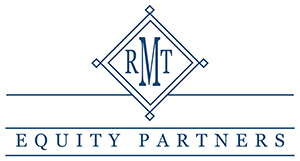If this is your first time visiting our blog posts page, then welcome to RMT Equity Partners, a real estate investing group out of Palm Beach Gardens, Florida, that helps people understand how to invest in both commercial real estate and multi-family real estate. If you have been interested in investing in real estate but don’t know where to start, or don’t know how to start, then the partners at our investment company are here to help! Want to learn more! Continue reading for more information about us and real estate investing. To speak with a representative, don’t hesitate to get in touch with us today.

Welcome to RMT Equity Partners
What is Commercial Real Estate Investing?
Commercial real estate is a property that is typically leased out for business and retail purposes. Investing in commercial real estate involves the purchase of properties that have been designed with the intent of housing commercial tenants. Commercial real estate investors lease out and collect rent from the businesses that occupy space in their properties, rather than from residential tenants. Commercial properties can be categorized into four main types:
Office
Retail
Industrial
Special purpose
Owning and maintaining leased commercial real estate requires full and ongoing management by the owner. Property owners may wish to employ a commercial real estate management firm to help them oversee leases and financing options, coordinate property upkeep and marketability, and more. Since this is a long list of responsibilities, it is common for people to rely on a management firm. However, depending on the type of commercial real estate, you may be able to do this yourself.
Advantages of Investing in Commercial Real Estate
One of the biggest advantages of investing in commercial real estate is the leasing rates. Commercial real estate can have impressive returns and considerable monthly cash flows. There tend to be longer leasing terms than other kinds of real estate investments, which gives the real estate holder more cash flow stability as long as long-term tenants occupy the building.
Commercial properties are valued on the amount of Net Operating Income that they produce, which can lead to a “forced” appreciation. Because Net Operating Income is calculated as the property’s income minus expenses, the owner has the ability to control it. For example, assuming the amount of income is fixed, a property owner could work to reduce expenses, thereby increasing Net Operating Income and the property’s value, as long as the property is well-maintained and up to date.
In addition to commercial real estate being a great asset to diversify your portfolio because of its distinct asset class, there are also attractive tax advantages. Because the physical condition of real estate degrades over time, the owner is allowed to “expense” a portion of its value each year to account for it. This expense is known as “depreciation" and can be used to reduce the property’s tax liability.
Challenges of Investing in Commercial Real Estate
There are, of course, some challenges that come with investing in commercial real estate, some of which you definitely should consider before deciding to put any money down. The first being that there is increased competition. When it comes to commercial properties, most buyers are looking for room for improvement. They want to increase the value of the commercial property, as this could allow them to refinance with cheaper, traditional financing, and buy out their investors.
We discussed another challenge briefly above: the matter of exceptional management. Will your property management team be able to handle the property up to your expectations, as well as the expectations of the tenants? What are your needs and the needs of the tenants that are occupying the space, and can the management team meet those expectations? You may want to consider the following questions:
How efficient are they?
How much experience do they have?
Are they compliant?
Poor property management, or one that underperforms, can cause serious challenges, so in addition to finding a lucrative property that you believe will present you with cash flow, you need to find a property management team that has the bandwidth to manage the property.
Another challenge is also the market risk. Real estate markets are dynamic and ever-changing in response to broader macroeconomic conditions. During a tenant’s lease period, commercial properties are somewhat protected from these changes. But, when a lease comes up for renewal, market risk means that there is a possibility that the tenant may not decide to renew their lease, or that the prevailing market lease rate at the time is lower than what the tenant was paying during the lease term. For these reasons, and more, it is imperative to understand the specifics of each market prior to making an investment.
What is Multi-Family Real Estate Investing?
As the name may suggest, multi-family properties, also commonly known as apartment complexes, are buildings with more than one rentable space. It doesn’t matter how many units it’s separated into, for example, it could be a complex of 3,000 garden apartments spread out over hundreds of acres; or it could be a single, detached house in which the owner rents out one floor. It is important to note that not all multi-family property is residential. A key difference is whether the property’s main purpose is a return on investment. If it is, then it’s a commercial property.
Advantages of a Multi-Family Real Estate Investing
There are several benefits to investing in a multi-family property, including the cash flow. One of the reasons that investors like multi-family property is because of the cash flow it generates each month. Rents are predictable and in strong markets, units can be turned over easily and re-leased to ensure steady cash flow year in and year out. This makes it a great source of passive income that is generated without the lift of a finger. It is easy to hire a property manager who will take on the day-to-day responsibilities as well.
Multi-family property is also considered a relatively “safe” investment, making it particularly attractive to those who have little experience owning or managing rental property. During an economic downturn, people need somewhere to live. In fact, during a recession, many people find themselves forced to sell their homes and move into rental housing, instead, so they can rebuild their credit. Compare this to office or retail settings which decrease in demand during economic downturn.
Challenges of Multi-Family Real Estate Investing
Since you are buying more than one unit, it may cost more upfront to purchase a multi-family home than it would be to buy a single-family home. A larger down payment should be expected, so be sure you are stable in your current financial situation. Furthermore, being a landlord is a time-consuming commitment, so you will also need to make sure that you have the time and bandwidth to listen to your tenants and act efficiently if there is ever any sort of problem. Negotiating lease terms can help with this, and should be done before the tenants move in.
If your units go vacant or a tenant is late with the rent, you are still responsible for paying your mortgage. You also have to cover the cost of repairing problems like a leaky roof or a clogged toilet. Even if you don’t have a housing payment every month, there is still some financial risk in multi-family homes. When getting started, you may want to seriously consider having a substantial emergency fund. The more units you have, the less impact an individual unit will have on your overall cash flow. However, landlords should still set some funds aside to cover unexpected repairs as well as rent on vacant units.
Interested In Learning More?
We hope you found this introductory blog helpful, and you can bet on finding more blogs as we continue providing you with the essential information you need to take advantage of the real estate market. For inquiries about what we do, or if you want to get started, simply reach out to our team today.
